Hungry for Faith
I’m a food writer. My trade is one that obsesses over cuisine, ingredients, the history of food and how it intersects with our daily world, but is uniquely concerned with the issue of hunger. My own tendencies when it comes to eating are as broad as anyone else’s – some days I crave the simplest pleasures, other days I long for superbly crafted delicacies. If I have one constant, it’s that my hunger changes, day by day. Sure, I could eat pizza for a week, maybe even two weeks, but I couldn’t do the same pizza for more than a few days. Most people, I’d think, share similar sentiments. Hunger is a part of our needs, and our needs are constantly changing, to some degree.
When we eat, we do so to satisfy hunger, nine times out of ten. But we also have hungers for other aspects of life, hungers that didn’t come naturally to us, but are the products of desires we have manufactured. From an early age, many people have been taught to respect the value of money, to scrimp and save, to work hard to earn and earn until you can live comfortably. Our job market reflects our hunger for money – scanty, with positions that people are either overqualified for, underqualified for, or just not appealing. In our hunger for more money, we’ve stripped the market of employment options with steady pay, better benefits, or even retirement options. The desire for money isn’t something we’ve been born with. It’s a product of living in societies that function on currency, and where the only way to acquire currency is to obtain employment. Ipso facto, we seek employment.
This then begs the question, what are the desires we are born with, our so-called natural desires? Certainly, when we are cold, we hunger for warmth. When we are famished, we hunger for food. When we are sad, we hunger for comfort. For many a man, these are basic, simple things, things that address the basic circumstances of human life in body and mind.
But as Hindus, we know that the individual is more than the body, even more than the mind. We know that our true identity in life is the soul, that fraction of the Divine that gives power to our body, life to our lives. It follows that the soul has desires that put into motion a hunger which we cannot fulfill with faculties of the body or mind. Remember – the soul is not of this material world, like the rest of us. It does not know the comfort of water, is not familiar with the loving embrace of a friend. It only knows God, and without God, it hungers.
Our job as devotees is to cultivate that hunger, to turn desire into faith. Many of us assume faith begins and ends with belief, a small sentence of acceptance: “I am a Hindu, God is real and omnipresent, omnipotent, so on and so forth.” But faith is about so much more than that, and it’s important to use hunger to cultivate faith. There are so many tools for us to do this with, so many ingredients on our lists. Listening to kirtan or spiritual discourses, attending religious festivals, meditation, discussion, simple acts of service. Contrary to worldly hunger, which is only satiated temporarily by seeking satisfaction, we must try to increase devotional hunger, by constant practice. Devotees must become like Kafka’s “A Hunger Artist,” disappointed with no one but themselves, always attempting to fast further, to become hungrier, to seek where no one else has sought.




 TV Asia
TV Asia Aastha:
Aastha:
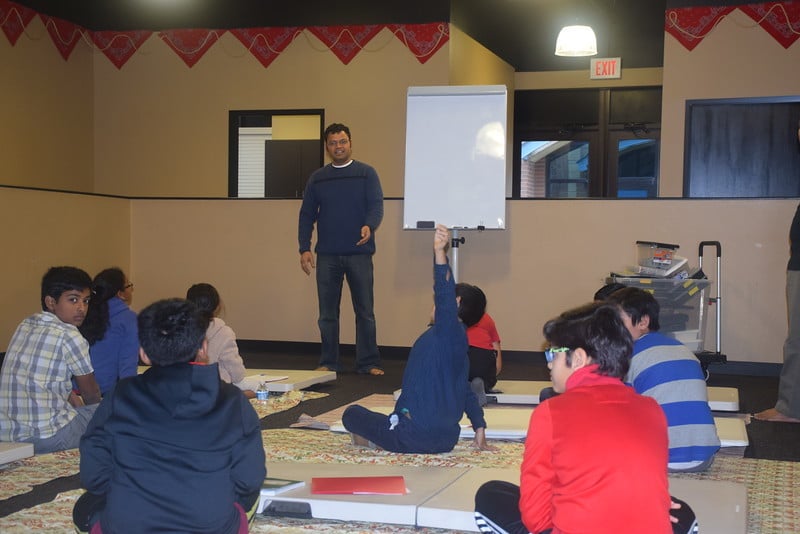


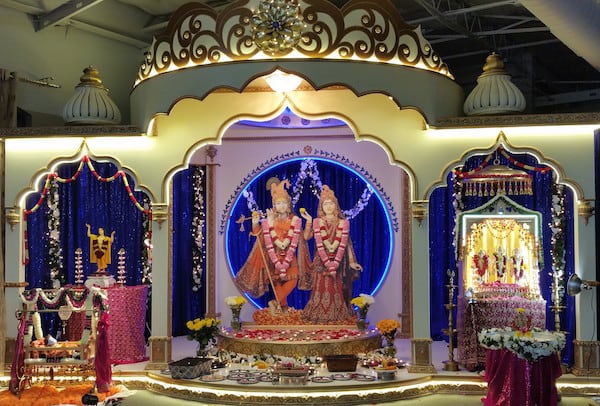
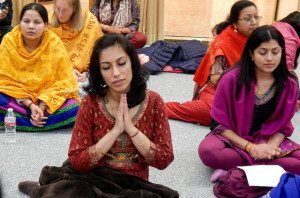 To inspire devotion to Radha Krishna by sharing the teachings of Sanatan Dharm Hindu scriptures, practicing the philosophy and practical aspects of Bhakti through Spiritual Discourses, Satsangs, Family Camps and Meditation programs
To inspire devotion to Radha Krishna by sharing the teachings of Sanatan Dharm Hindu scriptures, practicing the philosophy and practical aspects of Bhakti through Spiritual Discourses, Satsangs, Family Camps and Meditation programs To provide youth, living in the western culture, a deep immersion into Indian tradition, culture and give them skills that can help children excel at school and in life
To provide youth, living in the western culture, a deep immersion into Indian tradition, culture and give them skills that can help children excel at school and in life

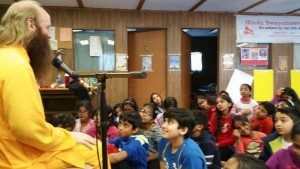 To Teach The True Knowledge of Hindu Vedic Scriptures and to ensure authentic teachings of Hindu religion are available for future generations in a simplified, practical way that is combined with logical scientific explanations as to how we can make them relevant to modern living.
To Teach The True Knowledge of Hindu Vedic Scriptures and to ensure authentic teachings of Hindu religion are available for future generations in a simplified, practical way that is combined with logical scientific explanations as to how we can make them relevant to modern living.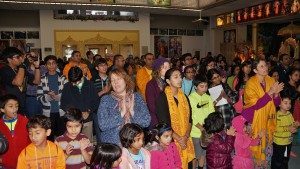 To Teach The Practical Form Of Devotion
To Teach The Practical Form Of Devotion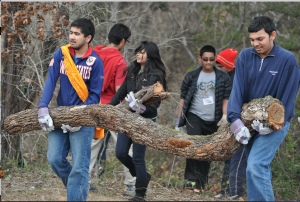 To Help Souls In Need through support of Humanitarian and Charitable Projects. This way we can not only improve the material welfare of society but elevate our own self through the act of giving and thereby accelerating our own spiritual progress.
To Help Souls In Need through support of Humanitarian and Charitable Projects. This way we can not only improve the material welfare of society but elevate our own self through the act of giving and thereby accelerating our own spiritual progress.